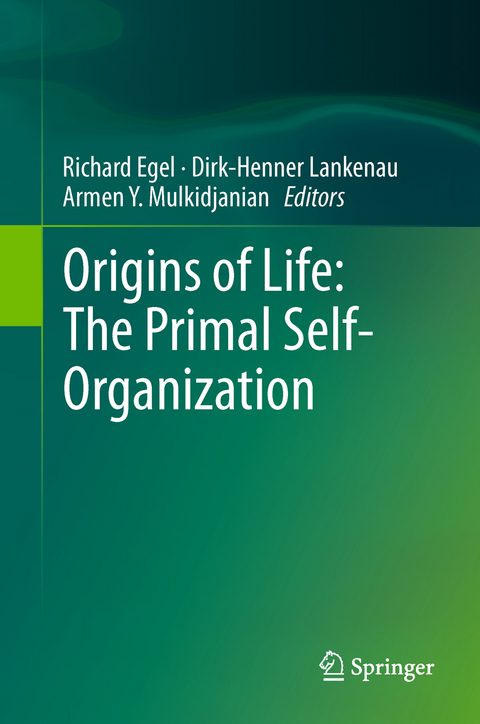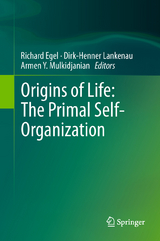Origins of Life: The Primal Self-Organization
Springer Berlin (Verlag)
978-3-642-21624-4 (ISBN)
If theoretical physicists can seriously entertain canonical "standard models" even for the big-bang generation of the entire universe, why cannot life scientists reach a consensus on how life has emerged and settled on this planet? Scientists are hindered by conceptual gaps between bottom-up inferences (from early Earth geological conditions) and top-down extrapolations (from modern life forms to common ancestral states). This book challenges several widely held assumptions and argues for alternative approaches instead. Primal syntheses (literally or figuratively speaking) are called for in at least five major areas. (1) The first RNA-like molecules may have been selected by solar light as being exceptionally photostable. (2) Photosynthetically active minerals and reduced phosphorus compounds could have efficiently coupled the persistent natural energy flows to the primordial metabolism. (3) Stochastic, uncoded peptides may have kick-started an ever-tightening co-evolution of proteins and nucleic acids. (4) The living fossils from the primeval RNA World thrive within modern cells. (5) From the inherently complex protocellular associations preceding the consolidation of integral genomes, eukaryotic cell organization may have evolved more naturally than simple prokaryote-like life forms. - If this book can motivate dedicated researchers to further explore the alternative mechanisms presented, it will have served its purpose well.
Energy as the Common Denominator: Energetics of the First Life.- A Hypothesis for a Unified Mechanism of Formation and Enantioenrichment of Polyols and Aldaric, Aldonic, Amino, Hydroxy and Sugar Acids in Carbonaceous Chondrites.- On the Origin of Phosphorylated Biomolecules.- Abiotic Photosynthesis: From Prebiotic Chemistry to Metabolism.- Salt-Induced Peptide Formation in Chemical Evolution: Building Blocks before RNA - Potential of Peptide Splicing Reactions.- Scenario of the Primary Pump: Emergence and Operation of an Automatic Engine to Generate Primordial Peptides and Beyond Nucleic Acids.- The Relevance of Peptides that Bind FeS Clusters, Phosphate Groups, Cations or Anions for Prebiotic Evolution.- Peptide-Dominated Vesicles: Bacterial Internal Membrane Compartments as Model Systems for Prebiotic Evolution.- Nicotinamide Coenzyme Synthesis: a Case of Ribonucleotide Emergence or a Byproduct of the RNA World?- On Alternative Biological Scenarios for the Evolutionary Transitions to DNA and Biological Protein Synthesis.- Two RNA Worlds: Toward the Origin of Replication, Genes, Recombination and Repair.- Integrative Perspectives: In Quest of a Coherent Framework for Origins of Life on Earth.
| Erscheint lt. Verlag | 26.8.2011 |
|---|---|
| Zusatzinfo | VIII, 366 p. |
| Verlagsort | Berlin |
| Sprache | englisch |
| Maße | 155 x 235 mm |
| Gewicht | 746 g |
| Themenwelt | Naturwissenschaften ► Biologie ► Biochemie |
| Naturwissenschaften ► Biologie ► Evolution | |
| Naturwissenschaften ► Biologie ► Zellbiologie | |
| Naturwissenschaften ► Geowissenschaften ► Mineralogie / Paläontologie | |
| Schlagworte | DNA Synthesis • Evolution • origin of life • Peptide synthesis • prebiotic evolution • primal synthesis • RNA world • Self-Organization |
| ISBN-10 | 3-642-21624-2 / 3642216242 |
| ISBN-13 | 978-3-642-21624-4 / 9783642216244 |
| Zustand | Neuware |
| Informationen gemäß Produktsicherheitsverordnung (GPSR) | |
| Haben Sie eine Frage zum Produkt? |
aus dem Bereich




